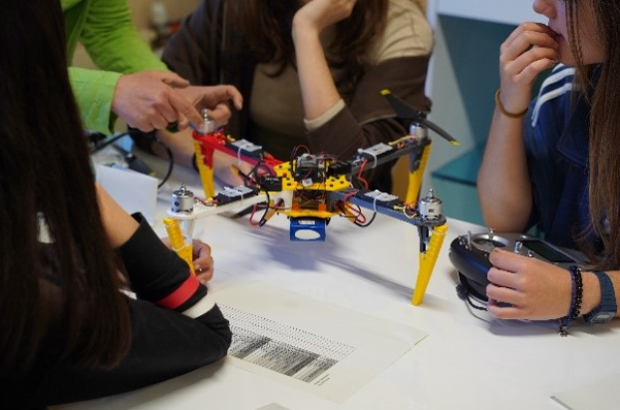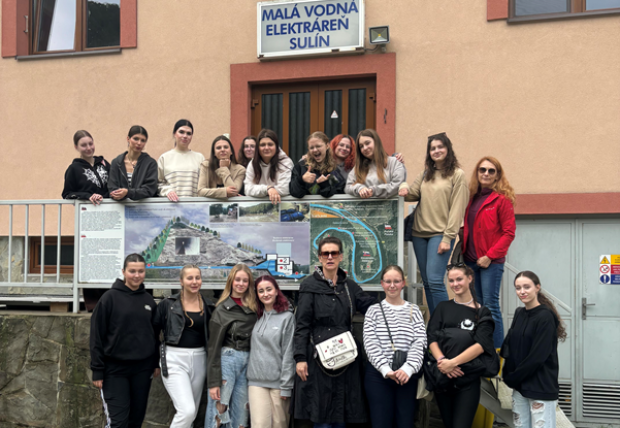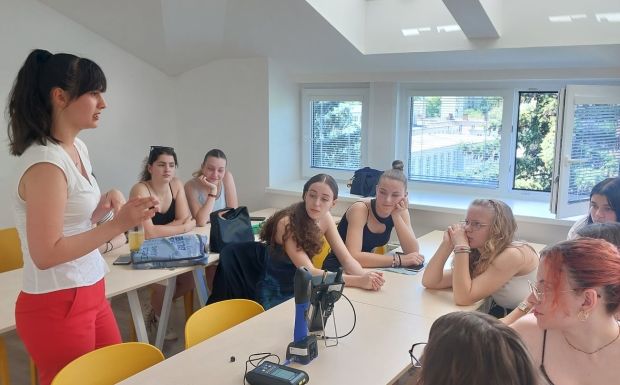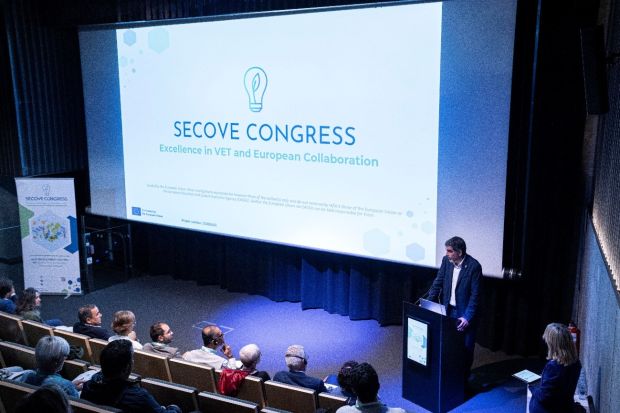National Workshop in Greece (November 2022)
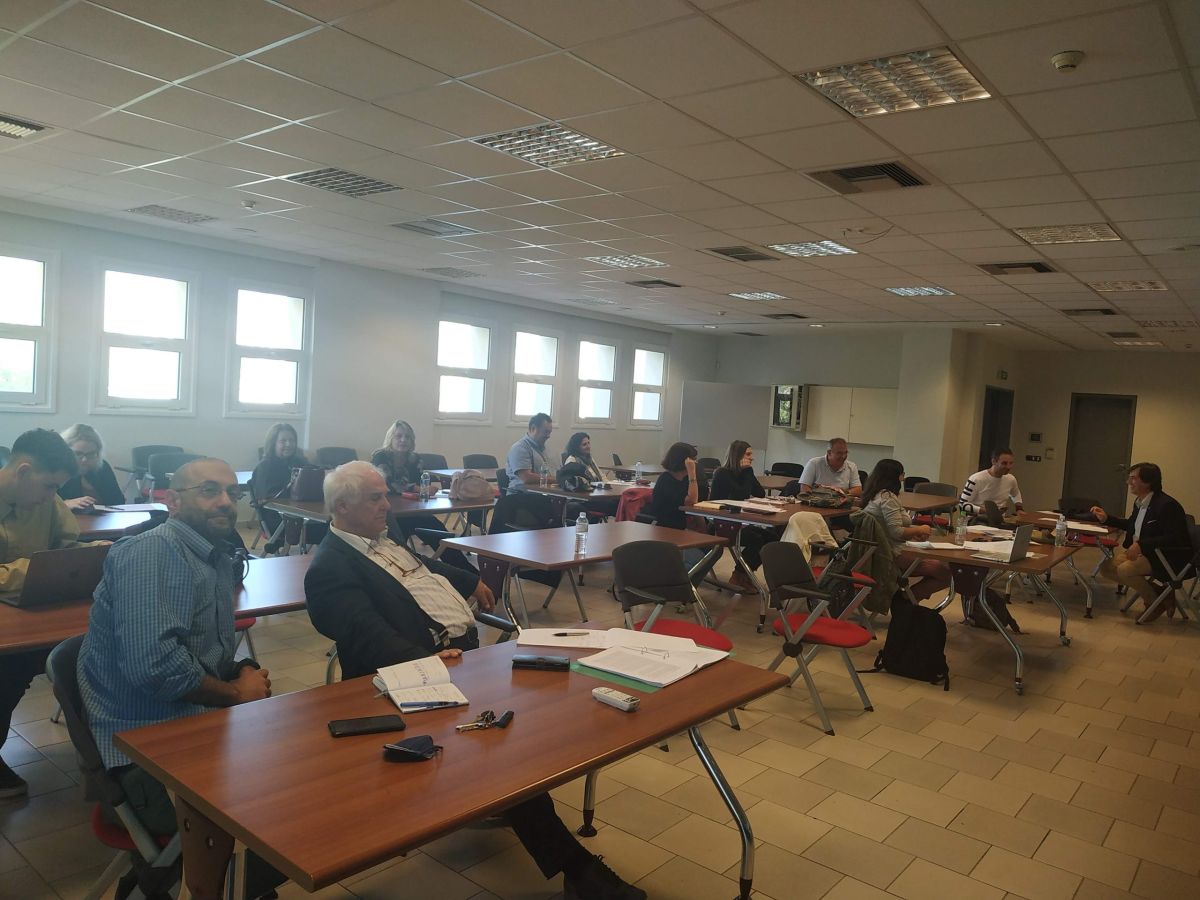
The objective of SECOVE is the establishment of its Network of cooperation. The first step in doing so is the organization of National Workshops.
The goal of such Workshops is to identify the very basis of cooperation for partners of national CoVEs in relation to topics such as VET Excellency and sustainable energy.
The first of such events, in the context of WP2, took place on the 14th of November 2022, Athens, Greece. It was hosted at the premises of the University of West Attica, project coordinator of SECOVE as well as the leader of WP2 – Set Up, Governance and Funding of SECOVE Platform.
The event was attended by all the Greek partners of SECOVE, namely:
- IDEC
- IIEK DELTA
- DIEK AIGALEO
- CHAMBER OF SMALL AND MEDIUM SIZED INDUSTRIES OF PIRAEUS
- CENTRE FOR RENEWABLE ENERGY SOURCES AND SAVING FOUNDATION
The goal of the workshop was to establish a structured dialogue regarding vocational excellency and sustainable energy, foreseeing the set-up of the Greek SECOVE platform. This activity fell in line with some of the project’s activities, and proceeds the transnational workshop taking place in Athens on the 29th of November, 2022, involving and discussing results from the other National Workshops (Spain, Slovakia, Italy and Portugal).
The main topics that came to be discussed in this workshop were:
- What does excellence mean in Vocational Education and Training?
- Which are the challenges and needs of different stakeholders?
- How SECOVE will address the vision for excellence (bearing in mind the local contexts and their real needs trends and opportunities for sustainable energy)?
Results and considerations
Regarding Excellence, many are the elements and features that appeared during the brainstorming session. It is a widely encompassing concept, strengthening many core areas of activity for VET providers, as well as other stakeholders (policymakers, companies and industry).
Excellence has to pass necessarily through the modernization of curricula, in line with expectations and aspirations of growth and development set by the industry. The new wave of training material has to employ cross-cutting as well as groundbreaking technological solutions not only in terms of sustainable energy but also in the provision of training itself: MOOC, VOOC, and AR/VR are only some of these examples.
Then it was the turn of work-based experiences, such as internships and apprenticeships, that also come to the spotlight in terms of relevance and duration (at least 12 months, according to the discussion). Finally, other important components were mentioned and opened the way for further discussion:
- Investment in research
- Inclusiveness
- Focus on Ιnnovation and Ιnnovative practices
- Quality Assurance in Εducation and Τraining, with a comprehensive evaluation of training materials.
The second part of the workshop went through the challenges that stakeholders face in achieving the abovementioned goals. Here, the discussion revolved around a shared sense of cooperation and lack thereof at different levels and between different stakeholders:
- Between VET providers and local stakeholders
- Between educational providers and businesses for curricula and working opportunities
- Cooperation in European projects
- Between VET providers and HR departments
- Between VET and R&D organizations
- Cooperation in between different VET organizations.
It was also mentioned the importance of an overall lack of incentives, not only in financial terms but also to make VET more appealing to the wide population.
Finally, the responses of the participants to most of the challenges and opportunities highlighted in the Greek National Workshop were:
- Creation of summer school for VET providers
- Enhancement of mobilities (students and educators) in countries abroad
- Creation of a platform containing all companies and VET organizations as members
- Cooperation with companies for trainings and provision of incentives to companies for participation
- Creation of a tracking system for VET alumni
- Connection of everyday energy needs with new educational materials and tools
- Mapping of regional labour needs
- Creation of strategies for internationalization
- Exchange of knowledge on technical skills
- Microprojects
- Connection with Career centres for Vocational Development






